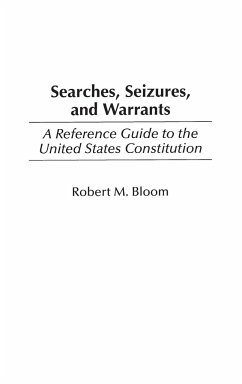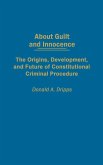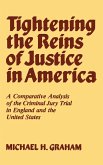An inherent tension resides in the Fourth Amendment's strictures on unreasonable searches and seizures. We want it to protect our privacy from government intrusion, yet we want the police to do whatever is required to solve crime. Greater controls on the power of the police provide more privacy protections to citizens. Reduced controls on police actions provide less privacy protection to citizens. Bloom explores this tension as he guides the reader to through the history and relevant Supreme Court decisions that have shaped the current state of Fourth Amendment law.
Hinweis: Dieser Artikel kann nur an eine deutsche Lieferadresse ausgeliefert werden.
Hinweis: Dieser Artikel kann nur an eine deutsche Lieferadresse ausgeliefert werden.








